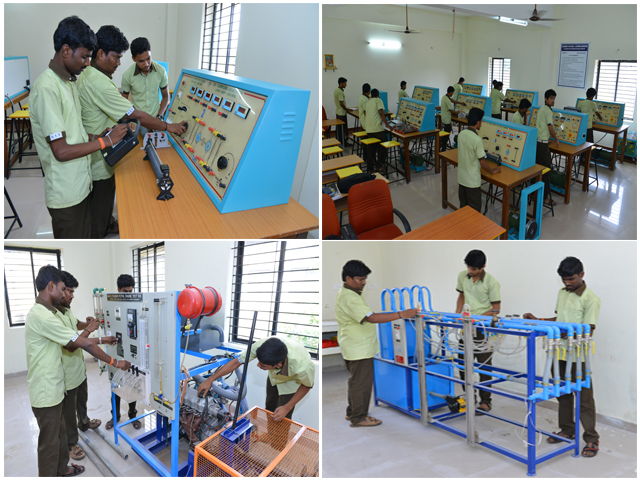The melding of electrical and electronics engineering is of particular importance at this time because of the growing needs of automatic control in high-voltage electrical systems, power plants, automation. The knowledge-based technological revolution that has rapidly transformed the area of electronics and its disciplines has created the need for engineers at the highest possible professional level. This is particularly true in light of the intense global competition in the field. The engineering graduate can find his/her place in the ever-growing industrial base in the field.
4 Years

-
1Multimedia enabled classrooms with
-
2High class furniture
-
3The entire college wifi enabled and has classrooms designed for Laptop use.
-
4The institution has well stocked library
-
5Large collection of text books related to EEE subjects.
-
6575 e-Book collections(DVD’s/CD’s)
-
7OPAC facilities is also provided to the students.
-
8350 Titles and 1944 Volumes of books related to EEE subjects.
-
911 Nationals and 120 e-journals shared by EEE/ECE Departments.
-
10Departmental Library offers more specialized collections of books, journals, periodicals and electronic resources for particular subjects.
-
11The library is being continuously upgraded as per the necessity of the courses and strength of students. Students can also utilize the digital library available.
The department envisions that the students of the branch becomes engineers of professional character equipped with a strong theoretical foundation required for critical thinking, practical engineering skills to face the challenges in the field, the ability to work in a team dignity, and all the qualities that help them accomplish their goals.
More specifically our graduates are expected:
-
1to excel in industrial or graduate work in EENG and allied fields,
-
2to practice their professions conforming to ethical values and environmentally friendly policies,
-
3to work in international and multi-disciplinary environments,
-
4To successfully adapt to evolving technologies and stay current with their professions.
Electrical engineers develop and oversee electrical systems and equipment. They work with everything from power grids to computers and telephones to cars. Electronic engineers on the other hand look after and maintain electronic equipments. Almost all the industries are highly dependent on electrical and electronic engineering. Like every other industry in India, the electric/electronic industry too has benefitted a lot from the de-licensing and de-regulations that the government has allowed. Now with exposure to global players and competition, the Indian companies have improved the quality of production and are growing to their true potential. This, in turn means better job opportunities for electronic and electrical engineering graduates. The industry has seen a reported growth of 20% and is expected to continue at the same pace in the coming years. Qualified engineers are getting absorbed across industries and sectors and will continue to do so in future.







